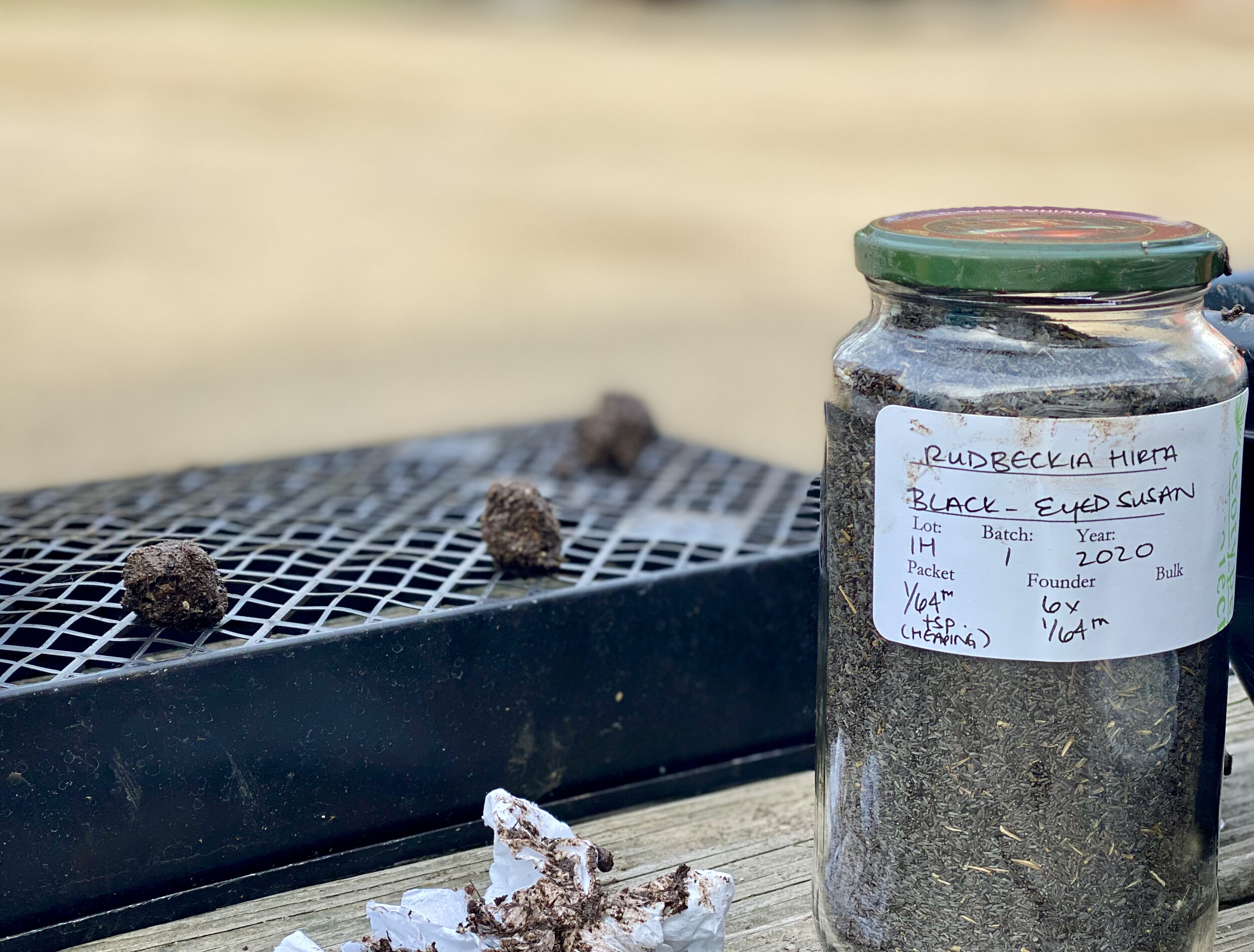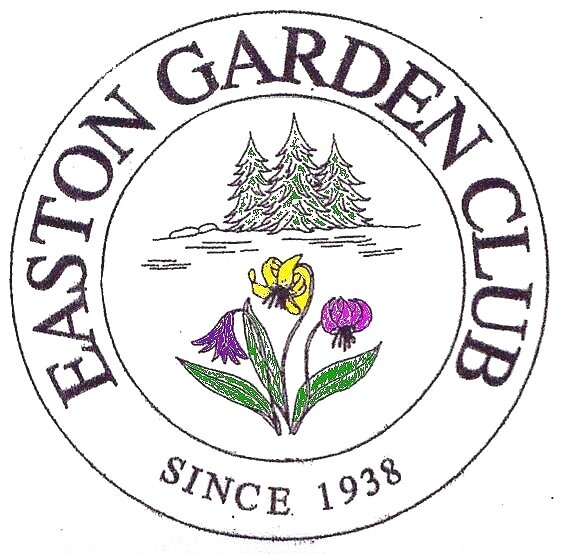
Guide to Winter Sowing & Spring Planting of your Ecotype Seed Truffle Collections
Easton Garden Club Conservation Committee creates Ecotype Truffle Seed Bomb Collections for purchase at select Club fund raisers .
Local Native ecotype 59 plant seed is hand rolled into seed balls for Winter sowing and Spring planting. We are grateful for our partnership with the CT NOFA Ecotype Project and farmer-led eco59 Seed collective for growing and making available this ecotype 59 native seed!
Truffle Collection A
Winter Sowing: Make your garden more pollinator friendly by simply tossing these “seed bombs“ filled with native, locally grown, ecotype seeds into your existing flowerbeds, fields, or place into pot or planter. Winter sowing means no watering. The outdoor winter temperatures provide the necessary “cold stratification” these Native seeds need to flourish. The snow and rain will help the seed get established and the plants begin to grow in spring.
Spring Planting: Native seed requires cold stratification to properly germinate. Place you native seed in the refrigerator for 6 weeks prior to planting.
Your local pollinators will thank you! Each carton contains twelve non-edible seed “truffles” or “seed bombs” ready for Winter sowing OR they require 6 weeks of cold stratification in your refrigerator prior to Spring planting.
Complete planting instructions and help from members of our conservation committee Easton Pollinator Pathway Project included with every kit.
Each carton contains twelve non-edible “Seed Bombs” ready to plant. Planting only -- do not eat!
Collection A includes three “truffles” of the following species arranged in your carton in position:
Asclepias tuberosa - Butterfly Weed or Monarda fistulosa – Wild bergamot
Mimulus ringens - Monkey Flower
Lobelia cardinalis - Cardinal Flower
Asclepias incarnata - Swamp Milkweed
Truffle Collection B
Winter Sowing: Make your garden more pollinator friendly by simply tossing these “seed bombs“ filled with native, locally grown, ecotype seeds into your existing flowerbeds, fields, or place into pot or planter. Winter sowing means no watering. The outdoor winter temperatures provide the necessary “cold stratification” these Native seeds need to flourish. The snow and rain will help the seed get established and the plants begin to grow in spring.
Spring Planting: Native seed requires cold stratification to properly germinate. Place you native seed in the refrigerator for 6 weeks prior to planting.
Your local pollinators will thank you! Each carton contains twelve non-edible seed “truffles” or “seed bombs” ready for Winter sowing OR they require 6 weeks of cold stratification in your refrigerator prior to Spring planting.
Complete planting instructions and help from members of our conservation committee Easton Pollinator Pathway Project included with every kit.
Each carton contains twelve non-edible “Seed Bombs” ready to plant. Planting only -- do not eat!
Collection B includes three “truffles” of the following species arranged in your carton in position:
Achilliea millefollium - Common Yarrow
Vernonia noveboracensis - New York Ironweed
Eutrochium dubium - Joe Pye Weed (also moist soil conditions)
Rudbeckia hirta - Black-eyed Susan
Truffle Collection C
Winter Sowing: Make your garden more pollinator friendly by simply tossing these “seed bombs“ filled with native, locally grown, ecotype seeds into your existing flowerbeds, fields, or place into pot or planter. Winter sowing means no watering. The outdoor winter temperatures provide the necessary “cold stratification” these Native seeds need to flourish. The snow and rain will help the seed get established and the plants begin to grow in spring.
Spring Planting: Native seed requires cold stratification to properly germinate. Place you native seed in the refrigerator for 6 weeks prior to planting.
Your local pollinators will thank you! Each carton contains twelve non-edible seed “truffles” or “seed bombs” ready for Winter sowing OR they require 6 weeks of cold stratification in your refrigerator prior to Spring planting.
Complete planting instructions and help from members of our conservation committee Easton Pollinator Pathway Project included with every kit.
Each carton contains twelve non-edible “seed Bomb” ready to plant. Planting only -- do not eat!
Collection C includes three “truffles” of the following species arranged in your carton in position:
Penstemon digitalis - Foxglove Beardtongue
Rudbeckia hirta - Black-eyed Susan
Achilliea millefollium - Common Yarrow
Vernonia novaboracensis - New York Ironweed













